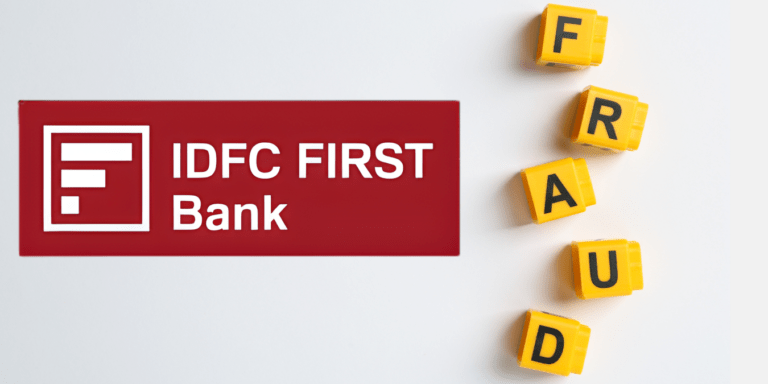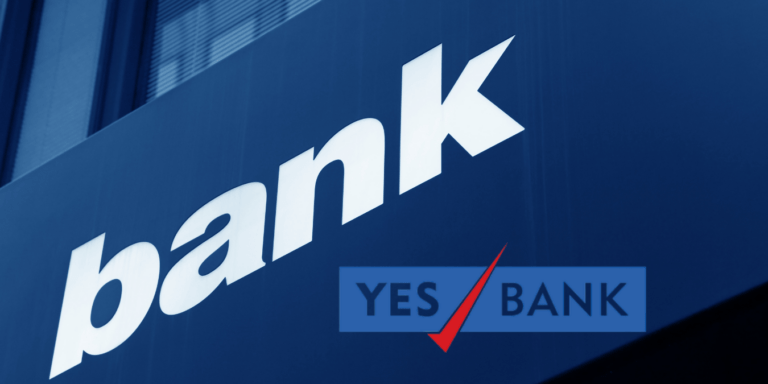
Why RBI’s FREE-AI Framework Will Change Indian Banking Forever in 2025
RBI’s revolutionary 2025 AI framework is quietly reshaping how millions of Indians bank—cutting fraud by 90%, slashing loan approvals by 60%, yet the biggest game-changing detail remains hidden. Discover the surprising secret powering India’s future-ready, ethical banking revolution. Are you ready to see what banks don’t want you to know?
The Reserve Bank of India’s (RBI) new AI framework, officially called the FREE-AI Framework, is revolutionizing the future of Indian banking by blending cutting-edge innovation with robust regulation. This bold blueprint for ethical and responsible AI adoption is setting the stage for a smart, secure, and inclusive financial ecosystem. Let’s dive into how this framework is reshaping banking in India with practical implications and real-world examples.
The Hidden Power of AI in Indian Banking
Imagine a banking system that can instantly detect fraud, approve loans in seconds, and offer personalized financial advice—all while ensuring fairness and transparency. That’s the future RBI envisions with its FREE-AI Framework, introduced in August 2025. This framework is a powerful response to the rapid AI adoption sweeping India’s financial sector, aiming to unleash AI’s potential while managing its risks smartly.
India’s banking and fintech ecosystem is already leveraging AI—from UPI fraud detection algorithms to robo-advisors guiding millions of small investors. But as AI becomes more embedded, challenges like data bias, lack of explainability, and cybersecurity threats risk shaking customer trust. The RBI’s new AI framework addresses these challenges head-on, making it a game-changer for everyone from large banks to small fintech startups.
Some Examples of RBI FREE-AI Recommendations for Banks
Here are some examples of key recommendations from the RBI’s FREE-AI Framework for banks:
- Establish AI Innovation Sandboxes: Banks are encouraged to create controlled environments to experiment with AI models and services safely before full deployment. This allows testing new ideas while managing risks.
- Develop Indigenous AI Models: Promote building AI solutions tailored specifically for Indian financial realities, addressing local challenges like financial inclusion, vernacular language processing, and alternative credit scoring.
- Mandatory Board-level AI Policies: Banks must have clear, board-approved policies governing AI development and use, ensuring alignment with ethical principles such as fairness, accountability, and transparency.
- Robust AI Governance and Controls: Implement strong internal audit, risk management, and monitoring for AI systems to detect biases, errors, or model drift early and maintain system integrity.
- Consumer Protection Mechanisms: Set up processes to address AI-related grievances, ensure privacy safeguards, and provide clear disclosures on how AI affects customer services (e.g. loan approvals).
- Training and Capacity Building: Continuously upskill staff at all levels about AI risks, ethics, and governance to build organizational competency.
- Incident Reporting and Transparency: Develop frameworks for incident reporting related to AI failures or breaches and disclose critical AI governance information to regulators and the public.
These recommendations collectively emphasize innovation alongside responsible, ethical adoption of AI for safer, more inclusive banking in India.
FREE-AI Framework: The Seven Smart Sutras
At the heart of RBI’s framework are seven guiding principles or “Sutras” that act as ethical guardrails:
- Trust is the Foundation: Building AI that customers and regulators can rely on.
- People First: Prioritizing customer rights and inclusion.
- Innovation over Restraint: Encouraging bold AI breakthroughs without fear.
- Fairness and Equity: Eliminating bias and discrimination in AI decisions.
- Accountability: Clear responsibility for AI outcomes.
- Understandable by Design: Making AI decisions explainable and transparent.
- Safety, Resilience, and Sustainability: Ensuring AI systems remain robust and secure.
These principles ensure India's financial AI systems are not just innovative but also just, safe, and built for the long term.
Six Strategic Pillars Steering AI in Indian Finance
To operationalize these Sutras, the framework is structured around six strategic pillars, each critical to balancing innovation and regulation:
- Infrastructure: Building a shared, secure AI data infrastructure accessible to all financial players, with a strong emphasis on data privacy and interoperability.
- Policy: Mandating board-approved AI policies within banks and fintechs with clear rules on ethical AI development and usage.
- Capacity: Upskilling the workforce to understand AI technologies, risks, and governance.
- Governance: Establishing strong internal audit and risk management controls to track AI behavior continuously.
- Protection: Enforcing consumer protection mechanisms against AI errors, bias, and privacy violations.
- Assurance: Independent assurance through audits, incident reporting, and transparent disclosures to regulators and the public.
Together, these pillars create a comprehensive ecosystem that supports quick innovation while ensuring safety and fairness.
Comparing FREE-AI to Global AI Banking Guidelines
Here is a detailed comparison of RBI’s FREE-AI Framework with global AI banking guidelines as of 2025:
| Aspect | RBI FREE-AI Framework | Global AI Banking Guidelines |
| Core Philosophy | Balances innovation with responsibility through 7 ethical Sutras (trust, fairness, accountability, explainability, resilience). It emphasizes a people-first approach with focus on inclusion and indigenous innovation for Indian contexts. | Global frameworks (e.g. NIST, EU AI Act, Basel) focus on risk management, transparency, human oversight, and operational resilience. They emphasize global standards for fairness, explainability, and auditing. |
| Strategic Pillars | Six pillars: Infrastructure, Policy, Capacity, Governance, Protection, Assurance designed for India’s financial ecosystem including smaller banks and fintechs. | Frameworks like NIST’s AI Risk Management Framework focus on governance, continuous measurement, risk management, and incident response. EU AI Act categorizes high-risk AI use (e.g. credit scoring) with strict compliance demands. |
| Regulatory Scope | Applies to all RBI-regulated entities: banks, NBFCs, payment operators, and AI vendors servicing India’s financial sector, with special emphasis on sector-specific challenges like financial inclusion, vernacular language AI, and local data privacy. | Regulations vary by jurisdiction: EU AI Act applies to AI used in EU; US SR 11-7 focuses on model risk management in banking; Basel emphasizes operational resilience globally. Cross-border coordination is increasing. |
| Innovation Support | Strong emphasis on AI innovation sandboxes, indigenous AI models, and infrastructure democratizing AI access to smaller players. Incentives and shared resources included to foster inclusive innovation. | Global regulators also promote innovation sandboxes (e.g. FCA’s Supercharged Sandbox) but with varying maturity. Emphasis on explainability and human oversight may slow some rapid innovation without safeguards. |
| Consumer Protection | Consumer-centric with explicit grievance redressal, bias mitigation, privacy protection, and transparency in AI-driven decisions aligned with Indian socio-economic diversity. | Global frameworks mandate fairness assessments, clear human oversight, audit trails, and user rights related to AI decisions, especially in credit, lending, and insurance sectors. |
| Governance & Assurance | Mandates board-level policy approval, ongoing AI monitoring, risk controls, incident reporting, and third-party audits to ensure accountability in AI systems across lifecycle. | Global standards require independent validation (e.g. SR 11-7), continuous risk monitoring, detailed documentation, and clear governance structures with external audit options. |
| Ethical & Social Focus | Emphasizes sustainability, non-discrimination, and responsible AI to ensure technology boosts financial inclusion and societal good in India. | Worldwide guidelines reflect ethical AI principles with a growing focus on social impact, bias audits, and multi-stakeholder governance but with regional variations in implementation rigor. |
This blend positions India as a leader in ethical financial AI, setting standards resonant with global frameworks while addressing India’s emerging market and consumer nuances.
Real-World Impact: How FREE-AI is Transforming Banking
Several leading Indian banks and fintechs have started leveraging the framework actively:
- Fraud Prevention: AI models trained under RBI guidelines detect suspicious transactions faster and more accurately, reducing fraud losses.
- Credit Access: AI-powered credit scoring models now incorporate alternative data (like utility payments and mobile usage), widening credit access for millions, especially in rural India.
- Customer Support: Natural language processing chatbots deliver seamless, 24/7 support in multiple Indian languages, vastly improving financial inclusion.
- Risk Management: Real-time AI monitoring platforms help banks manage operational risks and ensure compliance with RBI’s governance standards.
For example, a major bank has launched an AI innovation sandbox, supported by FREE-AI, to pilot indigenous AI models in loan underwriting. Early results show quicker approvals with fewer biases compared to older credit models.
Why This Matters: The Future of Indian Banking
India stands at a critical crossroads where AI-driven innovation could either accelerate financial inclusion and efficiency or, if unchecked, deepen inequality and systemic risks. RBI’s FREE-AI Framework ensures the former by:
- Promoting inclusive growth so no one is left behind in the AI revolution.
- Creating transparent AI systems that customers can trust and regulators can audit.
- Managing risks of cyber threats, algorithmic bias, and data misuse with strong governance.
- Encouraging homegrown AI innovations tailored to Indian financial realities.
With these deliberate guardrails, the RBI is building not just smarter banks but a resilient financial system prepared for the future.
Key Takeaways
- RBI’s FREE-AI Framework is a first-of-its-kind regulatory blueprint to guide safe and ethical AI use in Indian banking.
- It balances innovation with protection through seven core ethical principles and six strategic pillars.
- The framework addresses bias, explainability, data privacy, risk management, and consumer rights.
- Indian banks and fintechs are already piloting AI models aligned with free-AI’s recommendations, showing transformative potential in credit, fraud detection, and customer service.
- It signals India’s ambition to be a global leader in responsible AI in finance, promoting inclusion and sustainability.
Final Thought: The Secret Future of Indian Banking
The RBI’s AI framework isn’t just another set of rules—it’s the secret blueprint charting India’s financial future. As AI quietly powers every transaction, loan, and fraud alert, the question isn’t if AI will dominate banking, but how responsibly we harness it. Behind the scenes, free-AI’s principles and pillars guard this smart revolution, ensuring innovation doesn’t compromise fairness or trust. Indian banking’s next chapter is unfolding now—shaped by technology, ethics, and a vision for a financial system that works for everyone. What hidden opportunities and challenges lie ahead as AI weaves deeper into our money lives? Watch this space—it’s a future worth discovering.
Disclaimer: The use of any third-party business logos in this content is for informational purposes only and does not imply endorsement or affiliation. All logos are the property of their respective owners, and their use complies with fair use guidelines. For official information, refer to the respective company’s website.

































